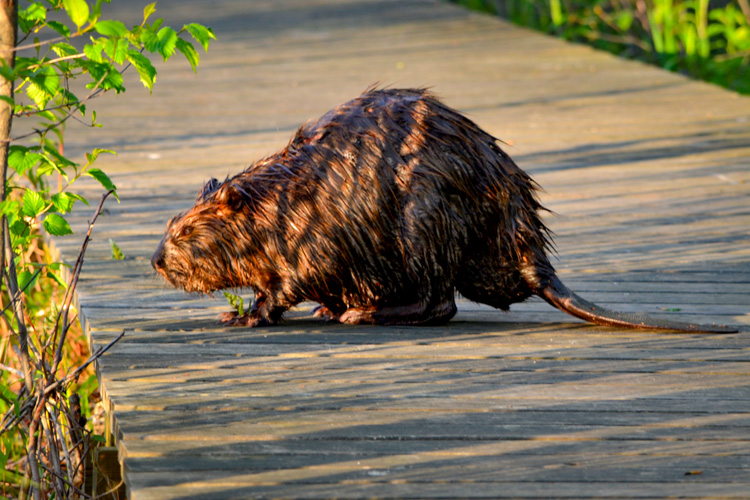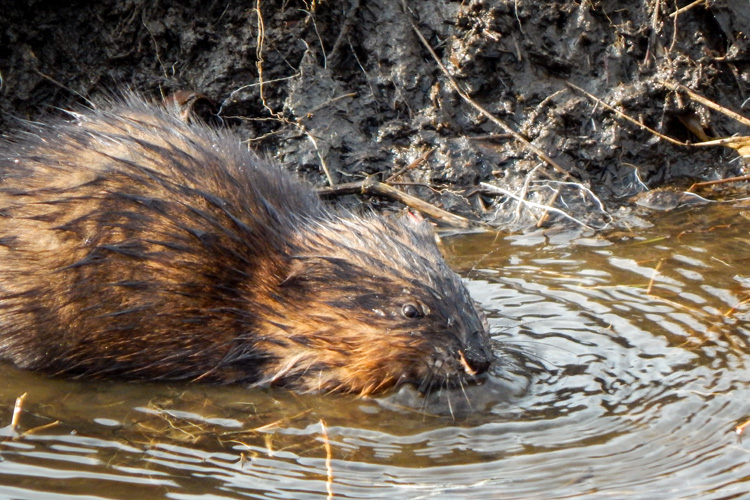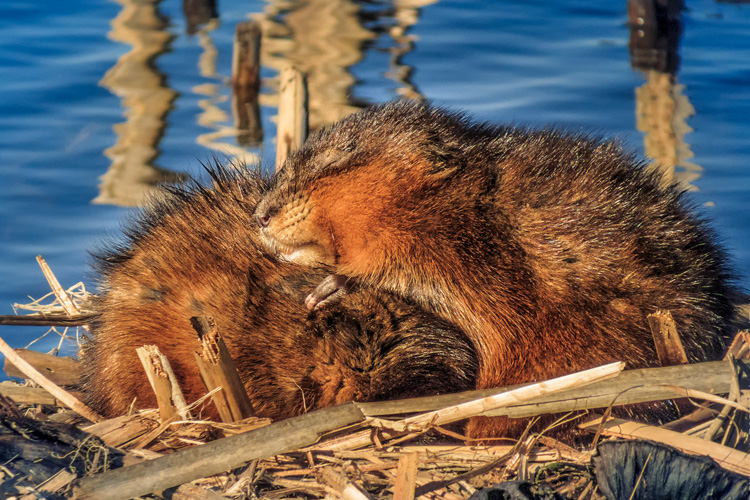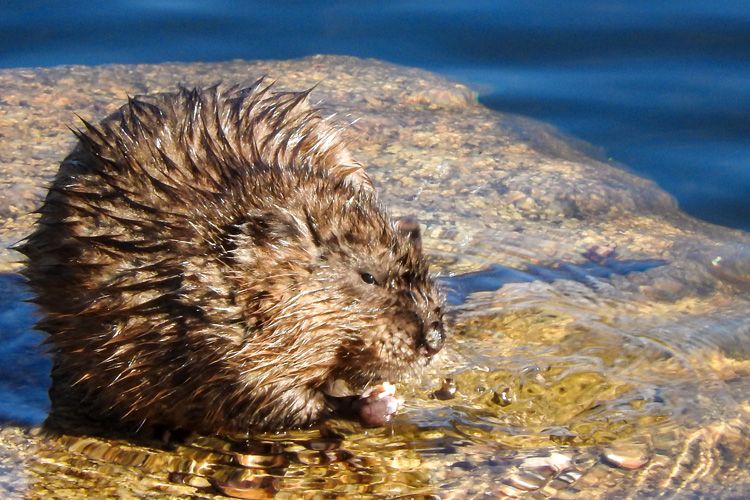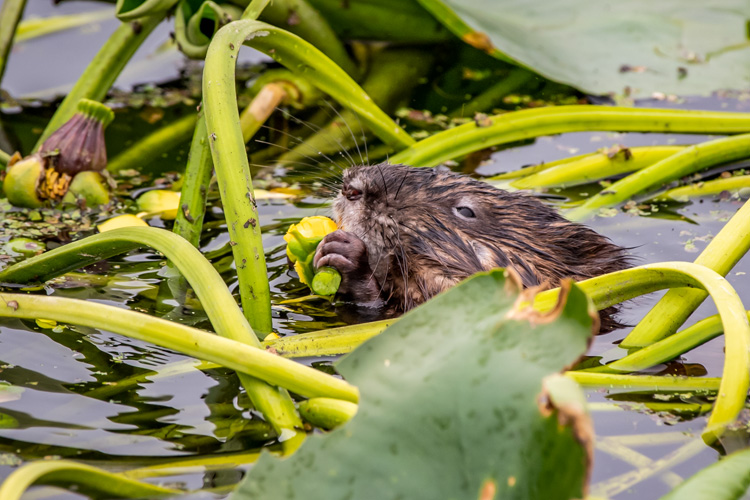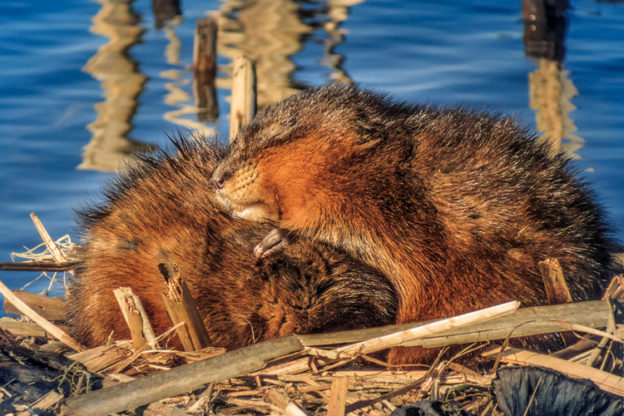While they do belong to the order Rodentia), muskrats are not, in fact, rats at all (i.e. members of the genus Rattus). Plus, they’re actually more closely related to lemmings than they are to their look-a-like cousins, beavers. The latter is a case of what is known as “convergent evolution”—two distinct species that evolve with a similar set of characteristics that just happen to work really well for the environment in which they live, kind of like two people coming up with the same idea at the same time in different locations.
From a distance, it can be difficult to tell muskrats and beavers apart. They are both semi-aquatic rodents with similar body shapes and colors; have bare, fleshy tails; and build lodges for their families. Side-by-side, though, it would be difficult to mistake them. Muskrats average 3–4 pounds each, one-tenth the size of beavers who clock in at a whopping 30–40 pounds, and their tails are long and narrow, not broad and paddle-shaped like a beaver’s. Additionally, beavers are strictly vegetarian while muskrats have a wider, more versatile, omnivorous diet of mostly aquatic plants (such as cattails and yellow water lilies) supplemented with small animals like frogs, crayfish, and fish.
Muskrats are prolific breeders, producing 2–3 litters per year of 6–8 kits each, but each individual only lives about 3–4 years in the wild. This rapid rate of regeneration is a key part of their survival strategy, since muskrats are a popular menu item for many predators, including coyotes and foxes, snapping turtles, weasels and otters, bobcats, owls, and especially minks and raccoons. Young muskrats may even fall prey to larger species of fish such as largemouth bass. As a result of their survival-by-numbers strategy, they occupy a very important role in the native food web.
Your best bet to spot a muskrat in the wild is along water edges and in wetlands at dawn or dusk, as they are crepuscular. Here are five photos of native muskrats from our Picture This: Your Great Outdoors photo contest. The deadline to enter the 2020 contest is September 30, so be sure to submit your own amazing nature photography soon!
